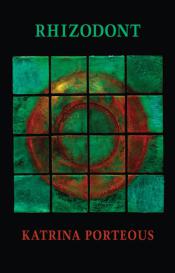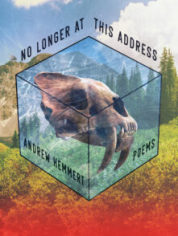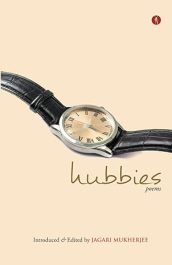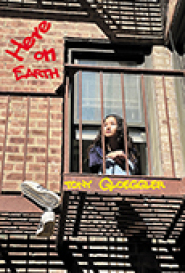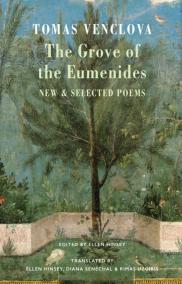
Katrina Porteous, Rhizodont,
Bloodaxe, ISBN 978-1-78037-713-1,
159pp, £12.99.
Porteous’ most recent collection, which has been shortlisted for the T S Eliot prize, is an ambitious, carefully researched and striking account of human responses to historical and prehistorical landscapes and communities that are located on the north-east coast of England. A strong sense of heritage imbues the collection; Porteous’ grandfather was a pitman in East Durham, and many of the poems in the first section of the book (‘Carboniferous’) give voice to fishing communities, as the poems flow up the coast from Horden to Lindisfarne. Sometimes this voice is in local dialect; sometimes it is learned; always it is meticulously observed. Porteous is a passionate advocate of and President of the Northumbrian Language Society, having established her home on the Northumbrian coast over thirty five years ago.
A dominant feature in the book is the sound of the language, and it is no surprise to find that many of these works actually first found form as collaborations with sound artists, including Peter Zinovieff, or as commissions for radio broadcasts. At times reading ‘A Lang Way Hyem’ I was reminded of Alice Oswald’s Dart; the use of ‘first’ and ‘second’ ‘resident’ as occasional narrators also recalled Under Milk Wood, although these interlocutors are more didactic than Thomas’, for example: ‘The biggest issue in this village is second home ownership. Holiday homes. It’s the highest in the country now…’. The poetry comes across more in the description of the natural world, than in the voices of the locals: ‘Quick as a needle, a swallow sweeps the strandline.’ Porteous claims not to be an academic, but she provides a substantial introduction and thirty pages of notes to the poems, which often need to be read with a thumb in the back so the reader can readily inform themselves of the background to the poems; there are also ample footnotes explaining the dialect, where it is used. ‘Book II: Invisible Everywhere’ contains further subsections relating to Porteous’ collaboration with scientific research, including cybernetics, AI, space exploration and the hidden landscapes beneath Antarctica’s ice. Much of this is commissioned work, evidence of Porteous’ standing in the literary community, and it is clear that she has a voracious appetite for knowledge about these esoteric contexts. Rhetorical questions feature prominently in this section of the book, testimony to Porteous’ curiosity.
Flowing through these are a series of poems from an audio sequence entitles ‘Susurrations of the Sea’, whose purpose is explained in detail in the introduction: they ‘reflect on aspects of the role that oceans play in the evolution of Life …’, and their function as (among other things) a carbon sink. This sequence is intended to form ‘a kind of chorus, in conversation with the poems of both Books.’ This is a lot of different tasks for the poems to carry out, even in such a long book.
The scope of such a book requires careful re-reading of the poems once you have absorbed the background to them, in order to luxuriate in the verse itself. All reviews are, of course, subjective, but I especially enjoyed recurring images of the tideline ‘endlessly rewrite[ing] itself’ (‘Linnets’) and
… the sea’s cold fire,
Its endless recycling; doing, undoing …
…You might hear
History endlessly write and rewrite itself, slowly
Erasing its old lines, over and over.’ (‘Off Beadnell Point’)
Here there is a real sense of the poet immersing herself in the coastal landscape and letting its deep history express itself in the immediacy of the moment. A meaty and satisfying read.
Hannah Stone
To order this book click here
Hannah Stone is the author of Lodestone (Stairwell Books, 2016), Missing Miles (Indigo Dreams Publishing, 2017), Swn y Morloi (Maytree Press, 2019) and several collaborations, including Fit to Bust with Pamela Scobie (Runcible Spoon, 2020). She convenes the poets/composers forum for Leeds Leider, curates Nowt but Verse for Leeds Library, is poet theologian in Virtual Residence for Leeds Church Institute and editor of the literary journal Dream Catcher. Contact her on hannahstone14@hotmail.com for readings, workshops or book purchases.
Andrew Hemmert, No Longer at This Address, University of Pittsburgh Press, 2025,
ISBN: 978-0-8229-6753-8, 88pp, $20.00.
Titles like “The Powerplants of Jupiter” and “To Live on Mars” suggest Andrew Hemmert’s planetary concerns in his new collection, No Longer at This Address, but the planet that most concerns him is the third one from the sun. As he writes in the latter poem, that though “I think I could live on Mars,”
who am I kidding,
how could I ever abandon a world like this?
But oh, this world. Against the background of devastating hurricanes in Florida and out-of-control wildfires in Colorado (in “Eating Honey from a Canopic Jar” he writes: “I so often dream of tornados”), Hemmert considers the causes and effects. He muses in “Protestant Ephemera”:
All the grasses with my favorite names
are invasive, all the state birds
are leaving their appointed offices
for more fitting climates, and rats,
as always, are ubiquitous as night.
Five of the thirty-two poems in No Longer at This Address are called “To the Instrument at Arecibo.” The Arecibo Observatory is located in Arecibo, Puerto Rico. The observatory’s main “instrument,” the Arecibo Telescope, was a thousand-foot spherical reflector. Completed in 1963, it was the world’s largest single-aperture telescope for 53 years. In 2020, two of the receiver’s support cables broke and the National Science Foundation announced that it would decommission the telescope. The telescope collapsed on December 1, 2020, and in 2022, the NSF announced the telescope would not be rebuilt. The poems are implicit elegies.
In the first, he tells of hearing about the telescope
breakdown on the radio.
When you collapsed, I heard
a researcher on the radio refer to you
as an instrument. What are your feelings
on music? Me, I think I would be a singer
if I had the talent.
It certainly does seem an odd choice of terms, the way a policeman orders people out of their “vehicles,” and the thoughts it triggers in Hemmert are also amusing. Indeed, many of his poems begin with these idle speculations. “A Dream of Gold, Eternity, and Clownfish” starts “I was thinking of the gold in the cargo hold / of a sunken and undiscovered Spanish galleon” before going on to wonder about cryogenics and bringing the dead back to life. “Wilderness and the American Mind” similarly begins, “I was thinking of a heavy hammer compelling / something molten and malleable into shape” before meditating on survival, volcanic ash covering half the country, Colorado wildfires, forests “crumbling into smoke,” the utter and complete darkness in Mammoth Cave.
But back to the Arecibo instrument. In the next of these he speculates that Hurricane Maria, the devastating 2017 storm, may have hastened its collapse. That poem ends, “ I flew / into San Juan a year after that storm
blew through, and the airport still wore the damage—
ceilings torn open, windows missing,
some terminals closed off and powerless.
We name hurricanes and they begin to feel
like individual offenders, like living
things.
Earlier in the poem Hemmert tells us he’d been “reading an
article about complacency,” suggesting how we take climate change for granted at our own peril, how easily we can convince ourselves, like the dog in the burning room meme, “Everything is fine,” and
put off addressing the issue until it’s too late.
Yet in another poem “To the Instrument at Arecibo” he notes that “so much of the initial interest in space travel was driven by competition with communists,” itself a wry observation about scientific inquiry. But in a later poem to the instrument, he assures us, “Instrument, I haven’t given up on the earth.”
In the final “To the Instrument at Arecibo,” while remembering witnessing a shuttle launch at Cape Canaveral, the poet muses, “Mostly I think the idea of Americans
dropping their differences and coming together in celebration
of such flight is a transparent dream, an oppressive myth.
But I almost believed it, watching that rocket go up and
not explode
into meteors, go up and stay. I am not trying to be sentimental
but damn if it didn’t stop me from worrying for a moment,
damn if it didn’t fill me with something resembling hope.
Yes, it may be ephemeral, even a tad maudlin, but it’s nevertheless part of the equation. “Western Love Song Refusing the Apocalypse” starts out on a similarly optimistic thought:
For me, it’s hard to believe the world could ever end
when you’re sitting under a tree full of wild cherries
eating a seafood bouillabaisse while honeybees
buzz past your ears like allied biplanes on their way
to save you.
Later in the poem he opines, “I just believe the apocalypse is / an anthropocentric concept.” He takes some comfort in the idea that the human race may be eliminated, but the universe will go on.
Still, in “North American Bison” he laments the passing of species, including “flowers that once roamed // the mountains and prairies,” specimens of which are now “displayed like a miniature ghost town circus” at the Buffalo Bill Museum. In “If I Had a Time Capsule” he writes:
If I had a time capsule I’d put into it
nothing, no guarantee
anyone will be around to dig it up.
Still, I choose the future over the past.
In “The Senator” he writes about a three-thousand-year-old bald cypress a woman burned down “so she could see more clearly / the crystal meth she was trying to smoke.” Oy.
While much of this sounds bleak and pessimistic, in the eponymous poem that ends the collection, Andrew Hemmert assures us that “it’s not so bad here / in the country of the rest of my life,” and that may be the best any of us can hope for.
Charles Rammelkamp
To order this book click here
Charles Rammelkamp is Prose Editor for BrickHouse Books. His latest collection is The Trapeze Of Your Flesh (BlazeVOX Books).
hubbies ed. Jagari Mukherjee,
Hawakal Publishers, August 2025, 214 pp.
What can be learned about the marriage chambers from a poetry anthology? In hubbies published by Hawakal Publishers 54 fantastic female poets speak of husbands. These poems are intimate, direct, sometimes critical and dreamy, but always authentic. As the editor Jagari Mukherjee states in her introduction, hubbies is a “celebration of love, desire, and the myriad ways in which relationships unfold.” Mukherjee states, “Poetry, at its essence, is an exploration of human emotions, relationships, and the unchartered territories of the heart.” This critical definition provides the aesthetic for the anthology as a whole.
Some poems are richer in emotion and language than others, and there are a few surprises throughout. As an example, Rochelle Potkar’s “Henry Mendonsa” is an expose of darker underbellies in male psychology. A married man dies and his greediest secrets are uncovered. The poem reads like an obituary as if to take a moral stance on Henry’s foul psyche. The editor’s own poems reflect on loss and its malcontents. In “He Says to Lalita” she writes, “Tonight, I lie alone at the same spot. Missing you is permanence.” The stars “laughed at my loneliness” deepening her somber tone.
Most of the poems are joyful, hopeful and resonate with our deepest wishes for love and privacy. Ajanta Paul writes, “Some relationships get / stronger with time,” suggesting that many marriages succeed at bringing friendship to the connubial chamber. Menka Shivdasani’s “The Fire Within” uses allegory to cast a light on how people shape each others’ lives through love. She writes, “We are all made of unbaked clay, / hardened in pits of fire” and “Stay, stay, my love, / do not turn to mud. / The Great Potter is building / a new vessel for us / in eternity.” This dialogue reveals a sacred mystery to the reader about how relationships shape our destinies.
In poems such as Camellia Paul’s “Bijou Problemette” love is like an outcast: “My love in tatters hangs from one side. // A truant, you could have mowed my havocked heart.” In this poem, the loved one leaves a whispering hole in the soul’s energy. Paul’s following poem “Trapped” tells more as it becomes apparent these poems are about loss through death. Every love story might not end ideally. She writes, “…a trail of sand leaving my palm / and retreating to the sea.” The natural imagery borrows from classical poetic device to remind readers love is always present even when the loved one recedes.
Boby Borah’s “As I Love You” presents love as a conjoining emotion, “How can I join / My broken heart on / Your love persistently!” This conundrum initiates many relationships. Broken hearts mend anew through fresh relationships, and sometimes those relationships endure. “I have been waiting / Since an unknown past / For you only” Borah writes to her soulmate.
Many of these poems celebrate love’s artistic and mythological dimensions. “Finding You in the Classroom” by Namrata Pathak reflects on love’s miscreant tendencies: “the light to enter the alleys of an outcast’s heart” and “How many circles have we made / in search of a perfect triangle?” Love is presented in multifarious ways, not just as sentimental emotion. Sunanda Bhadra Bhattacharyya’s “My Scientist Husband” is a quirky tribute to how scientific ideas infiltrate her household love secretly.
However, these poems are not just love poems. They speak of duty, love’s trials and tribulations, how relationships unfold, yearnings even within marriages for other loves, and the stubbornness men often show their female partners, as well as their affections and humor. hubbies does not mince words or present idealizations of partners. It is a serious, bold reflection on how women view men, what they love and expect, how love delights as well as disappoints, and what darkness shrouds the light we know as love.
Dustin Pickering
To order this book click here
Dustin Pickering is founder of Transcendent Zero Press. He has contributed writing to Huffington Post, Los Angeles Review, The Statesman (India), Journal of Liberty and International Affairs, The Colorado Review, World Literature Today, Asymptote Journal, and several other publications. He is the author of numerous poetry collections and books including Salt and Sorrow. He placed in the top 100 for the erbacce prize in 2021 and 2023, and was a finalist in Adelaide Literary Journal’s first short fiction contest. He was longlisted for the Rahim Karim World Prize in 2022 and given the honor of Knight of World Peace by the World Institute for Peace that same year. He hosts the popular interview series World Inkers Network on YouTube and co-founded World Inkers Printing and Publishing.
